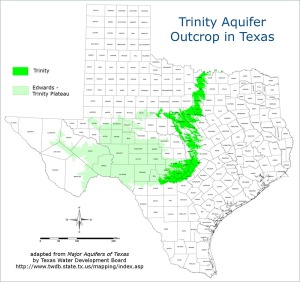Spooky Action Ranch Report: Week Four 2015
While work has continued on the ranch, with new paths slowly spreading across the front gardens and lots of spinach salads, its also been a very busy week filled with interesting intellectual adventures of the ranch.
BookPeople
Mary Helen Specht, whom I am honored to know, recently launched her debut novel at BookPeople in Austin. I attended the launching, with probably about a hundred fans, and rather enjoyed the reading. I have been falling quickly into the book, Migratory Animals, which is a rich and rewarding read. Mary has given us a lush sensual landscape where she explores some pretty interesting and imperfect people as they navigate the inevitable ups and downs of life. I look forward to seeing where this journey takes me, and I look forward to future works by Ms. Specht, which I am sure will be a delight. (Update: You can now read my review at dawnyoungs.com)
Water Debate
We like to nourish new ideas at Spooky Action Ranch, and one of our projects is the formation of a new rhetorical society. A few folks interested in honing our speaking and debating skills gather each month to tackle one topic or another. This week we held our first monthly meeting of the year. Our topic for the evening was water rights and we asked ourselves ‘Who Owns the Water?” It was certainly an interesting discussion on a very difficult topic, one which deeply effects us here in the Texas Hill Country.
One of the prerequisites for food self-sufficiency is a water supply adequate for sustaining our crops. At Spooky Action Ranch, we have two sources of water. We collect rainwater and we tap the Trinity Aquifer with a traditional well. We are working to increase our rainwater collection to the point where we can cover all of our growing needs, but we currently do need to supplement this source with the well water. Additionally, all of our household needs are covered by the well.
Our well water use is pretty minimal, a drop in the giant bucket that is the Trinity, however, as the cities of San Antonio and Austin grow, and their suburbs begin to converge upon one another, there is an every increasing demand on the resources of all the aquifers which pass through the Hill Country. This may mean that we are facing serious water challenges in the years ahead, including the prospect that our well could run dry. The Texas Tribune recently covered this issue of growing concern. Resolving our water use issues will not be easy, but it is something that we urgently need to address.
The Mises Institute
We also spent some time this week in Houston, at the Houston Mises Circle 2015. This year’s topic was Breaking Away: The Case for Secession. There were a number of excellent speakers at this event from Tom Woods (check out his podcast!) to Ron Paul, who discussed our current political system and how we all might be better served if we turned away from the idea of a single massive centralized government and began to invest in truly localized democracy, a system where we might live peacefully with diverse neighbors rather than battling with those who are different from us for control of a single centralized authority.
The most interesting presentation for me came from the Mises Institute’s president Jeff Diest. Mr. Diest spoke about the idea that secession begins at home. He essentially argued that true shifts in political structure are led by shifts in culture and that each and every one of us has the capacity to shape our culture through the act of living our lives in accordance with our values.
This idea echos one that has long inspired us at the ranch. We have long felt that our centralized and industrialized food complex is not only detrimental to our individual health as well as the health of the planet, but that it is also precariously vulnerable to war or shifts in climate and also diminishes our connection with our own humanity. Mr. Deist advocates for, among other things, a drive toward self sufficiency. I don’t believe this means each man must be an island, for we truly are all connected with all life on this planet, but rather that each man holds his place in this system and cycle of life and takes full responsibility for both what he consumes and what he produces in this world.



